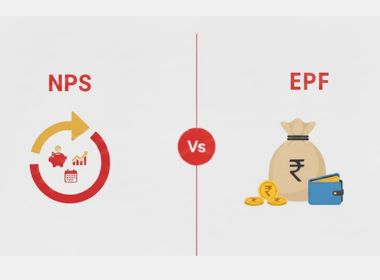Search Suggestions
- Gold Loan
- Money Transfer
- Mutual Funds

How to Choose the Best Critical Illness Insurance Plan
With rising medical inflation and the growing incidence of critical illnesses, like cancer, kidney failure, etc., choosing the best critical illness insurance plan in India is no longer optional, but essential. A serious illness may lead to major financial distress and leave families struggling to manage treatment expenses, home support and daily needs during the course of recovery.
Table of Content
- Evaluate the List of Covered Illnesses
- Decide on an Adequate Sum Insured
- Compare Waiting Periods and Survival Clauses
- Know the Claim Process and Payout Terms
- Look for Value-Added Benefits
- Consider Premium Affordability and Renewal Benefits
- Check Eligibility Age and Medical Underwriting Requirements
In such unforeseen situations, a critical illness insurance policy provides a one-time cash payout upon diagnosis of a covered condition. This plain monetary support by the insurer helps individuals cover costly medical treatments, ongoing expenses and maintain peace of mind during difficult times.
Hence, understanding what critical illness insurance is and recognising how it differs from standard health insurance plans is the key. The former pays a fixed amount when an individual is diagnosed with a serious condition, rather than just reimbursing medical bills as conventional health insurance policies do. This makes critical illness cover a direct and consequential way to safeguard the insured’s finances.
To help individuals on their journey of choosing the most relevant critical illness insurance plan, the following are the key factors to consider.
Evaluate the List of Covered Illnesses
It is important to understand that every insurance provider offers a distinct list of critical illnesses under their plan. Commonly covered illnesses include cancer, heart attack (Myocardial infarction), stroke, kidney failure, major organ transplant and paralysis. Some of the best critical illness insurance plans also offer early-stage coverage, which allows for partial payouts upon initial diagnosis, a useful benefit for the insured to manage medical expenses from the outset.
Decide on an Adequate Sum Insured
The amount an individual chooses must reflect real-world treatment costs, especially for those residing in metro cities where the cost of treatments is slightly inflated. Treatment for a critical illness can range anywhere between INR 5 lakh to INR 30 lakh or even more, depending on the severity and duration of the illness. Selecting a higher sum insured provides the insured with greater flexibility in treatment options and increased peace of mind. Additionally, ensure the critical illness plan also adjusts for inflation if possible.
Compare Waiting Periods and Survival Clauses
Every critical illness insurance plan comes with a waiting period, usually 30 to 90 days after policy issuance. Additionally, a survival period (typically 14 to 30 days) may be required after diagnosis before a claim becomes payable. Critical illness insurance policies with shorter waiting and approval periods are more practical, allowing for timely access to funds. Rest, as a standard practice, be sure to read the fine print before finalising the insurance plan for your needs.
Know the Claim Process and Payout Terms
Unlike regular health insurance policies, critical illness health insurance pays a lump sum amount to the insured upon diagnosis, rather than based on medical bills intended for reimbursement. Understanding the claim process, required documentation and the turnaround time for reimbursement is crucial. A simple and transparent claim settlement process ensures that policyholders receive timely support when it matters most.
Suggested Read: How to Make a Health Insurance Claim: Step-by-Step Process
Look for Value-Added Benefits
While lump sum coverage in a critical illness policy is vital, some insurers take it a step further by offering supportive services to alleviate the day-to-day burden of treatment and recovery. Features such as telemedicine consultations, second medical opinions, wellness support programs, hospital daily allowance and even monthly installment payment protection may prove immensely helpful during challenging times. While these benefits may vary depending on the insurance provider an individual chooses, opting for a plan that includes such practical assistance helps insured and their families better navigate the emotional, physical and financial stress associated with critical illnesses.
Consider Premium Affordability and Renewal Benefits
Affordability is crucial when selecting a policy that will remain with you over the long term. Look for critical illness insurance plans that balance comprehensive coverage with reasonable premiums. Some insurers offer lifetime renewability, premium discounts on claim-free years and automatic sum insured increases. Over time, this makes your investment in the best critical illness insurance plans more practical, sustainable and rewarding over the course of time.
Suggested Read: What is a Health Insurance Premium: A Beginner's Guide
Check Eligibility Age and Medical Underwriting Requirements <h2>
Some of the best critical illness insurance plans have a minimum entry age of 18 and a maximum age of 65. However, buying early, when you are younger and healthier, typically allows you to lock in a lower premium. Depending on the applicant's age and medical history, the insurer may request a health checkup or additional underwriting to assess the risk. It is advisable to always disclose health information honestly to the insurer to avoid claim rejections later when it is needed the most.
When it comes to securing your future and easing financial stress, choosing the best critical illness insurance or a life insurance plan is a practical and proactive step. This is where Muthoot Finance stands out with its thoughtfully curated insurance plans that combine comprehensive coverage with ease of access. In case an individual seeks financial cushioning for life-altering medical conditions or requires additional features like hospital cash benefits with attractive interest rates, Muthoot Finance ensures that you have a policy tailored to your specific needs.
- Insurance
- Group Insurance
- Health Insurance
- Home Insurance
- Vehicle Insurance
- Life Insurance
- Travel Insurance
- Shop Insurance
CATEGORIES
OUR SERVICES
-

Credit Score
-

Gold Loan
-

Personal Loan
-

Cibil Score
-

Vehicle Loan
-

Small Business Loan
-

Money Transfer
-

Insurance
-

Mutual Funds
-

SME Loan
-

Corporate Loan
-

NCD
-

PAN Card
-

NPS
-

Custom Offers
-

Digital & Cashless
-

Milligram Rewards
-

Bank Mapping
-

Housing Finance
-

#Big Business Loan
-

#Gold Loan Mela
-

#Kholiye Khushiyon Ki Tijori
-

#Gold Loan At Home
-

#Sunherisoch
RECENT POSTS

Understanding Gold Bees: How it Works, Net Asset Value, Returns and More
Know More
Multi Cap and Flexi Cap Mutual Funds: How Are They Different?
Know More
Online Personal Loan vs. Offline Personal Loan - Which Is Better for You?
Know More
10 Tips to Improve Chances of Personal Loan Approval
Know More
10 Factors Affecting Mutual Fund Performance Explained Simply
Know More
10 Key Factors That Affect Your Personal Loan EMI
Know More
What Is Fine Gold? Meaning, Purity (999), Uses & Price Explained
Know More
Gold vs Silver: Which is Better as an Investment?
Know More
Why Gold Is a Safe Haven Asset: Meaning, Benefits & Real Examples
Know More
Gold or Bitcoin - Best Investment for Value Retention
Know MoreFIN SHORTS

The Best 7 SIF Funds of 2026: A Better Way to Invest
Know More
Gold Price Hits ₹1,40,000: How It Impacts Gold Loan Amounts
Know More
How to Check Loan Number: Step-by-Step Process
Know More
How to Open an SIP Account: Online and Offline Process
Know More
How Do I Apply for MSME Certification Online in India?
Know More
7 Important Reasons to Choose Hallmark Gold When Buying Jewellery
Know More
What Are Co-Pay and Deductibles in Insurance Policies?
Know More
Should You Take a Loan Against Your Mutual Fund or SIP?
Know More
Top 5 Best Mid-Cap Mutual Funds to Watch in 2026
Know More
Are Personal Loans Right for Retirees? Key Points to Consider
Know More
What Happens to a Personal Loan After the Borrower Dies?
Know More
Best Loan Choices for Credit Scores of 580 and Below
Know More- South +91 99469 01212
- North 1800 313 1212





